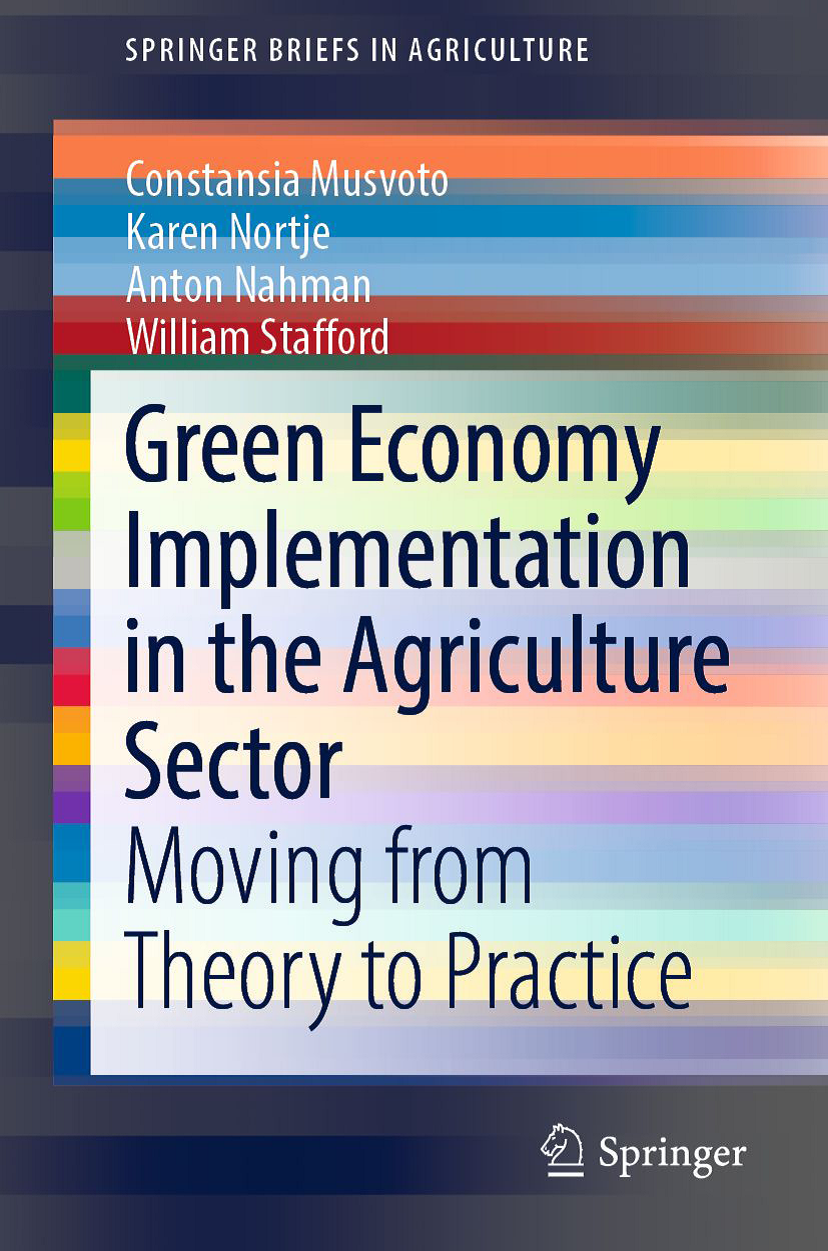CSIR researchers publish book on guidelines for planning and implementing green economy projects

A team of CSIR researchers recently published a book titled Green Economy Implementation in the Agriculture Sector: Moving from Theory to Practice. The book addresses a distinct gap, as there are currently no guidelines available for planning and implementing green economy projects in the agricultural sector. Read more...
A team of CSIR researchers recently published a book titled Green Economy Implementation in the Agriculture Sector: Moving from Theory to Practice. The book addresses a distinct gap, as there are currently no guidelines available for planning and implementing green economy projects in the agricultural sector. The United Nations Environment Programme defines a green economy as one that results in improved human well-being and social equity, while significantly reducing environmental risks and ecological scarcities.
The book was co-authored by senior researchers Dr Constansia Musvoto, Dr William Stafford and Karen Nortje; and research group leader, Anton Nahman. The authors combined information from desktop reviews and field research on vegetable production in a green economy context in South Africa, in order to bridge the gap between the volumes of theoretical information and practical implementation challenges that may be encountered at project level.
"Our research focussed on how agriculture could support a green economy in South Africa. Through this book, we are providing guidance on the practical implementation of green economy initiatives in agriculture," explains lead author, Constansia."
The book draws on field case studies and desktop reviews to provide a useful analysis of the green economy implementation context and a practical framework for implementing crop production green economy projects. It contributes to the body of knowledge on green economy implementation and its primary targets are researchers, specialists and students in the fields of green economy, agriculture and sustainable development. Furthermore, it also contains relevant information for farmers and practitioners, such as agricultural advisers.
The team engaged several farmers in the Limpopo province who were seemingly unaware of the concept of a green economy. "It is of relevance and importance to them because the ideals of a green economy promote the efficient use of resources, keeping costs low, protecting the environment and social equity, among other factors," says Constansia. Therefore, individual farmers would reap benefits from operating with the green economy in mind.
Although the book focuses on agriculture, it also highlights the theoretical and practical aspects of green economy implementation in a generic way and uses vegetable crop production for illustration. The book is also applicable to other sectors. It provides a step-by-step process to assist the user to translate abstract green economy principles into tangible practicalities on the ground and, thus, has the potential of unlocking the benefits of a green economy.
The book was published by Springer Publishing, in January 2019, and is available for purchase via the Springer online store.


